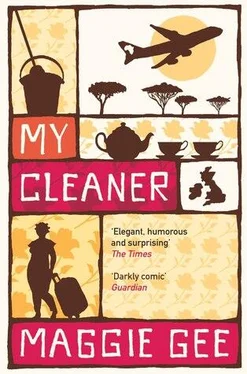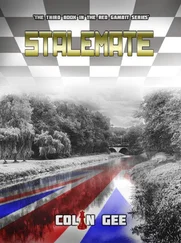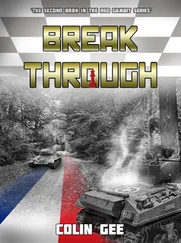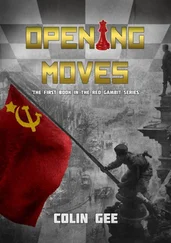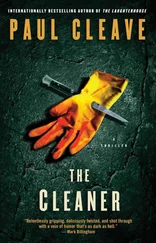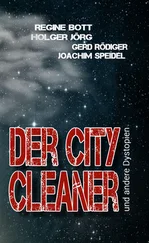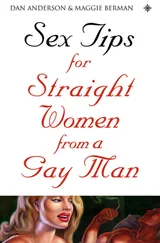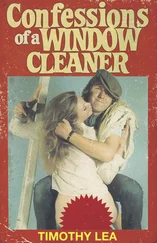I was glad to see Justin sitting out in the sunlight, reading a paper like a normal Englishman. He spread out his paper in the breeze like a prince and ate the lunch I had made for him. Later he can do all these things for himself, but at the moment he is still like a baby I was glad to see him outside at last. His curls were like an angel’s, fine and golden. The sun shone on his milk-white skin.
These people do not know how lucky they are. War never seems to happen here. And yet I love Justin. It is not his fault. I want him to be well. I cannot hate him.
Anna found several things in Justin’s room. First of all, she found he had a television. It was hidden underneath a dressing-gown, which he had draped cunningly over the screen. It was on, but he had turned the sound down. She asked me whether to turn it off. I went upstairs and had a look. I had never seen this television. He was watching a programme called ‘Parent Swap’, where real children choose to swap their parents. So now I know Justin is not sleeping all day.
If this is how he spends his life, perhaps he is doing it to annoy his mother. When he was little, she always complained if she found Justin watching television. “Surely you are not watching TV again? — as if most people only watched it once.”
I wonder whether Miss Henman knows her son is interested in swapping his parents.
But the other thing Anna found is more important. It shows me I have made a major error, but all detectives sometimes make errors. A good detective will learn from them.
Under the bed Anna found a photograph, and left it on Justin’s table, where I found it. A picture of a beautiful black woman. On the back of the photograph is written ‘Zakira’. And as I look at it, the face changes, and I see it is the woman with the orange headscarf who stood on the doorstep in Canaan Gardens. The woman who was holding the purple flower.
Trevor has found My African Journey . He sits in the garage, under a bare bulb, browsing through the book which he had liked so much. It was written in 1908, which isn’t really so long ago.
Winston has a brisk, manly style. When he’s got something to say, he doesn’t hang about. The first chapter is called ‘The Uganda Railway’. Winston seemed very impressed with this, which ran from Nairobi to Lake Victoria: ‘Here is a railway, like the British Fleet,’—he’d be shocked by how small the old Fleet is now, thinks Trevor—“not a paper plan or an airy dream, but an iron fact grinding along through the jungle and the plain, waking with its whistles the silences of the Nyanda. Trevor likes that phrase, ‘an iron fact’. And the way Winston made himself a butterfly net out of telegraph wire and mosquito net. Once the British were good at making things. These are the, kinds of facts Trevor likes. His clients have airy fairy ideas, but he has to work them out in practice. Nessy is airy fairy too. That’s why he does all her donkey work.
Winston had fallen in love with Uganda. Its polite, clever people, its animals. Not just the animals he could shoot. He really took to the butterflies. “Swallow-tails, fritillaries, admirals, tortoise-shells, peacocks, orange-tips…flitted in sunshine from flower to flower, glinted in the shadow of great trees, or clustered on the path to suck the moisture.” And yet he also saw the horror of it. Mosquitoes, tsetse flies, death and destruction.
Trevor wonders what Mary will make of Winston. The book seems to change when he thinks of her reading it. “What an obligation, what a sacred duty is imposed upon great Britain — to shelter this trustful, docile, intelligent Baganda race from dangers which, whatever their causes, have synchronised with our arrival in their midst!”
Didn’t Mary say her language was Luganda? That probably means she is one of these Baganda. Mary is not what you might call ‘docile’. Winston might get right up her nose.
“Let us be sure that order and science will conquer, and that in the end John Bull will be really master in his curious garden of sunshine and deadly nightshade.”
Trevor has mixed feelings, reading this. Of course, it must have been great to know there was an empire, so any old schoolboy could dream of a future, instead of being on benefits.
Though maybe it was only public schoolboys. And Uganda wasn’t really our garden…
Winston’s confidence shone out from every page, yet the world he imagined never came into being. And he was a bloody clever chap, so what hope is there for the rest of us? The man believed the railway would make everyone rich, yet according to Mary, the line has been abandoned. No more trains from Nairobi to Uganda. They’ve got AIDS, apparently, and old John Bull didn’t even sort them out with clean water.
Trevor switches off the light and goes back in to the house, leaving his shelves of books in darkness. What must life be like in today’s Uganda?
From The Life of Mary Tendo
Mary likes what she re-reads about herself. Her Life now exists outside her head, outside her body, which has lived it. She likes the low hum of her laptop’s engine, which reminds her of her beautiful fridge, at home. Here in London, she’s inventing Uganda, for as she writes, her life becomes different.
I was a clever girl, rarely given the cane. My parents sent me to boarding school because the local school could no longer teach me. I passed senior school with thirty-five points, the highest score the school had ever had. Being clever did not help me to make friends with the others, but I did not care, I lived for the holidays when I came back to my friends in the village. And then I finished boarding school.
My father decided I had to marry, but my mother was strong, she stood up for me. “If she’s educated, the world will be hers.”
“She should marry,” my father said, sternly.
“You want her to stay here all her life? You want her to stay poor, like us?”
“You want her to be a shrivelled woman who nobody wants, with a womb like a groundnut?” My father rarely shouted. My mother murmured something soft. I lay awake listening, willing her on.
Night after night the same row broke out. I knew my father was torn in two. He had been approached, by an old friend, on behalf of a boy from the next village, good people, with many cows, and the bride price offered was a good price.
Cows now, or cows in the future? My mother saw a blue distant sky raining cows.
I am the child of good parents. In our village, there was no better father. He called me to him after a week of storms. “Daughter, will you marry Mwanje?”
“He is quite nice,” I said, looking down. “Thank you for asking me, father. But I don’t want to marry him.” At first he shouted, but not for long. He made me promise to work my hardest, and let him arrange my marriage later, but he did not look at me when he asked, and I did not look at him when I promised. Both of us knew I was going away.
I went to the kitchen and helped my aunty, but I watched him sitting out in front of the house, a long time, alone, before he came inside.
I went to the city, to Makerere, and in the village they were all impressed. “ Asoma e Makerere . It is the best university in Africa.” (Yet once you have been there, you know it could be better.) Instead of gaining cows, my father sold chickens to give me money for food and paper. Books I queued to read in the library; even Makerere had not enough books, and now I hear many shelves are bare. I came home on the taxi, most weekends, racketing along on the broken road, walking the last five miles on foot.
My second year in the city, life seemed strange and oppressive. I was far from home, and we were maddened by rumour. Obote was driven out by Museveni. We hoped for better things, but change makes you afraid. The city filled up with jeeps of happy soldiers, hooting loudly, returned from the bush. Ugandans had all grown used to fear, under Amin and Obote, and we didn’t know then that the new lot would be better.
Читать дальше
